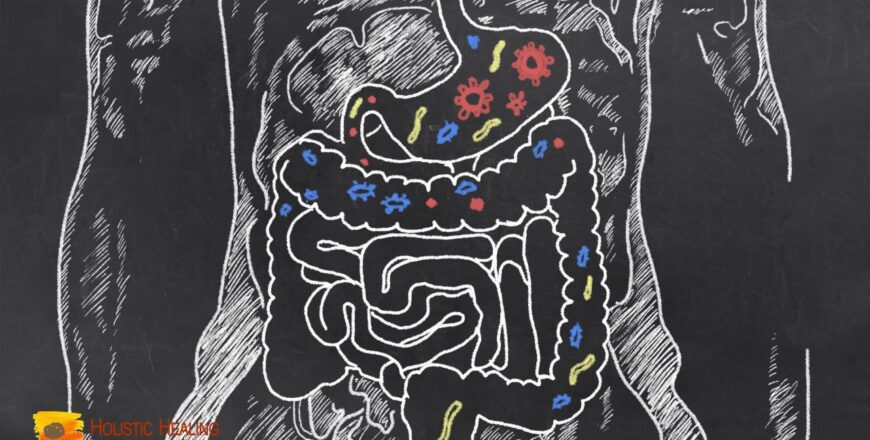“Colon is the root of our Life Tree! 90% of diseases are ‘growing up’ from Colon. Clean the root regularly and your life will be free from any disease!” – Dr. Ludmila
There is an old saying that “death begins in the colon.” This is an oversimplification to be sure but more accurate than not. In fact, the road to health begins with intestinal cleansing and detoxification — no matter what the disease or problem.
Healthy Intestines
Unfortunately, most people confine their understanding of intestinal cleansing to its effect on fecal matter. And even though it is true that cleansing programs do draw old fecal matter out of the colon, limiting the discussion to fecal matter misses the big picture and obscures the differences between colonics and colon detox programs.
Understand, the intestinal tract is essentially a continuous tube from the mouth to the anus, and each part of the tube has a specific function to perform. Among these are:
- Digestion — transferring the nutritional value of that food into the body.
- Processing the waste from that food and eliminating it from the body.
- Serving as a drainpipe for waste produced as a result of metabolic functions within the body itself.
- Serving as a drain for toxic substances absorbed through our lungs and skin, etc.
- Functioning as a first line of defense in the body’s immune system by serving as a home to beneficial bacteria that identify and eliminate viruses and unhealthy bacteria ingested with our food.
What can go wrong if the system is backed-up?
Physically, the colon is simply not designed to store large amounts of old fecal matter. Stores of old fecal matter are not only breeding grounds for harmful bacteria and dangerous parasites, but the extra garbage causes the colon to distend and expand. This causes the walls of the colon to thin out (like blowing up a balloon more and more). As the walls extend out, they press on and compress other organs in the abdominal cavity.
Consider that a sluggish bowel can retain pounds of old toxic and poisonous fecal matter (10-20 pounds is not unusual, and up to 65 pounds has actually been reported). It should be noted that doctors rarely see this accumulated matter during colonoscopies because patients are given purgatives to clean out their intestinal tracts before the colonoscopies, thus removing the evidence — but they do see the effects, the herniation of the colon aka diverticula.
In fact, a clean colon is essential in our detox pipeline. The liver is the main detoxifying organ of the body; it works by filtering out and/or neutralizing dangerous drug residues and poisons from the blood and then passing them out of the body through the colon via the bile duct. But if the colon is plugged, it’s like flushing a toilet clogged with toilet paper; everything backs up. The net result is sickness and disease. In fact, you can’t even begin to cleanse and repair other body systems until you clean out the colon so that the toxic material will have a clean pathway out of the body.
Again, the net result of a backed-up system is sickness and disease including:
- Constipation and the attendant symptoms of self-toxification.
- Diverticular disease (herniations of the colon).
- Hemorroids.
- Irritable Bowel Syndrome.
- Ulcerative Colitis.
- Crohn’s Disease.
- Colon/Rectal Cancer.
- Other Related Diseases including: diabetes, Gall Stones, Kidney Stones, Gout, Hypertension, Varicose Veins, Rheumatoid Arthritis, Psoriasis, and Obesity.
- Other cleansing treatments (i.e. liver cleanse) are not as effective if the colon isn’t clean.
How can I tell if the system is backed up enough to require a treatment?
A normal bowel movement is soft and unformed. It should break apart when it hits the water — or at least when flushed. This is not to be confused with diarrhea, which is characterized by water.
There has been a great misconception among the public and most medical professionals about how often a normal healthy person should move their bowels. For years, doctors have thought that anywhere between one bowel movement a day and one a week was normal. What we have learned is that it is normal, and necessary, to have one bowel movement a day for each major meal (as opposed to a snack) you ate the day before. If you eat three major meals, you should have three bowel movements the next day. If you don’t, you’re not alone. In fact:
- In the United States, the average frequency of stool passage is just over 3 bowel movements per week.
- Individuals with colonic inertia (a condition of the colon when muscles do not work properly, causing constipation) often do not pass a stool for 7-10 days at a time.
The key issue, of course, (aside from organic disease) is lack of fiber in your diet — the more fiber, the faster the transit time of waste through the intestinal tract. Even with all the attention fiber gets in relation to healthy evacuation.
If your diet consists of a lot of slow transit time food, then you are essentially clogging your pipes. Once nutrients are absorbed from food, there is no reason to keep the waste in your body. In fact, the longer food stays in your intestines, the more it rots, causing long-term disruptions and toxicity.
Keep your Colon clean and maintain a good function of your digestive system to enjoy Health & Vitality.
Visit our center for a special procedure ColonhydrotherapyDubai.
Or book a consultation with our Specialist Gastroenterologist to restore function of your digestive system.

